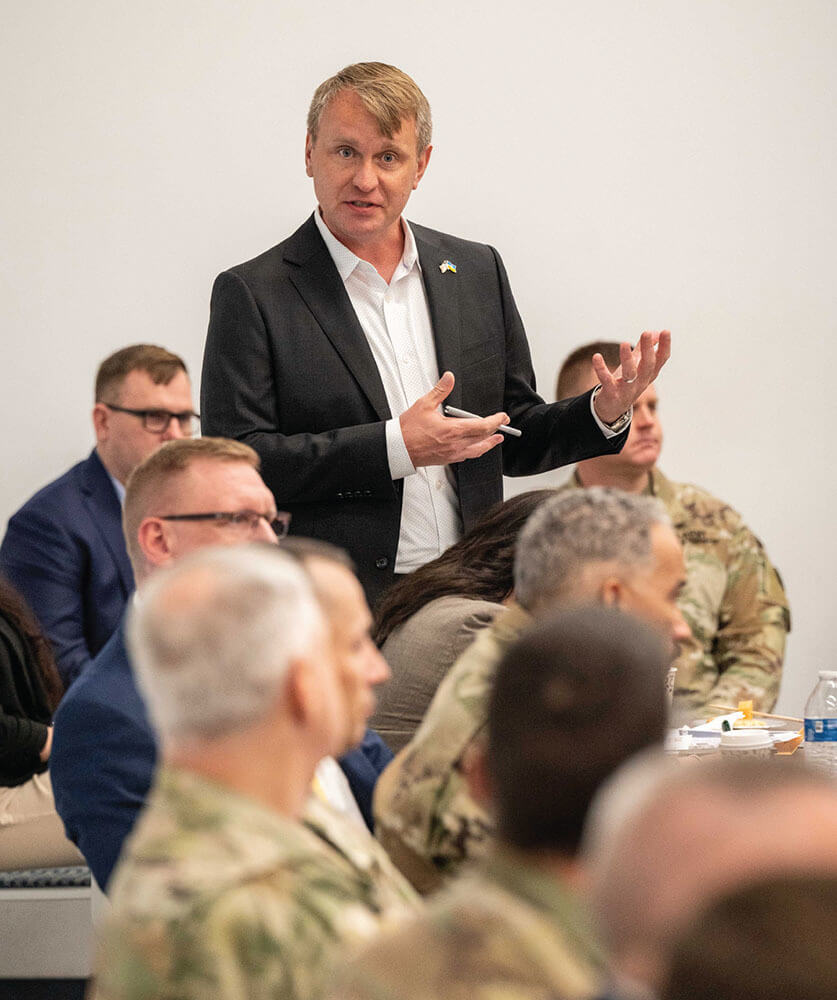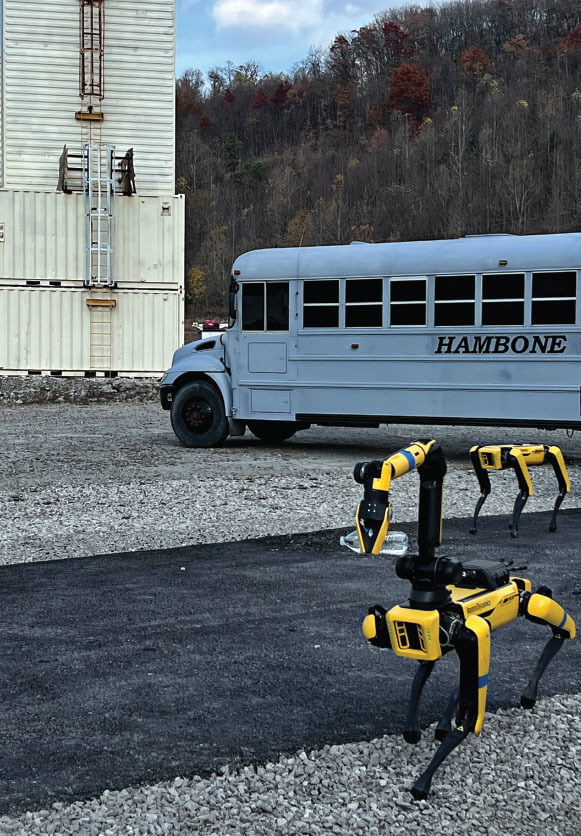

CLAY County
Earning trust and building opportunities for the community of Clay.
Change comes in all shapes and sizes. Sometimes it’s a mural, bringing color and light to those who view it. Other times, it’s a business that provides new opportunities and hopeful growth. Or maybe it’s something as seemingly simple as finding ways to include others. Our 2024 Possibilitarians are all about growth and helping their communities—and our state—reach their full potential through a variety of methods and means. Because they see them—the possibilities. And those possibilities are endless, just like their ideas, drive, and passion.
When anyone tells Zenovy Wowczuk that something is impossible, he firmly suggests they stay out of his way and come back in six months to see the progress. It’s this kind of steadfast determination that has made him a successful businessman operating in the military–industrial complex.
He is the visionary founder of the Civil-Military Innovation Institute, known as CMI2, and a driving force behind the institute’s groundbreaking work in Clay County.
CMI2 works closely alongside soldiers to address challenges, develop solutions, and deliver cutting-edge capabilities for the Department of Defense. And when Wowczuk first laid eyes on the challenging terrain in Clay, he knew it would be the perfect location for the scale of the project he had in mind.
Wowczuk was on the hunt for a testing ground for the many technologies that his CMI2 team works on, and he only had eyes for sites within the Mountain State. He says he has an unwavering commitment to prioritizing opportunities right here at home, even when it may not always be the easiest path forward. Retired Major General James Hoyer pointed him to Clay County, emphasizing the desperate need for economic revitalization in the region.
Clay, despite its economic challenges and abject neglect from past industrial activities, appealed to Wowczuk because of its strategic location and untapped human capital. The community was initially skeptical of CMI2’s plans and promises, and Wowczuk says those reactions were understandable, considering industry’s track record in the region. Their skepticism fueled him to work even harder to make positive impacts and show them how CMI2 is different.
“This area has gotten the wrong end of the stick for a long time,” Wowczuk says. “A lot of industries and companies have been there, taken what they wanted, and given nothing back to the community. So people were a little reticent when we arrived. ‘Oh no, here we go again’ was the typical reaction. I understand that, and they have every right to question anyone coming into their community. But I know that we do what we say we’re going to do. I know that we’re different.”

The Institute began its work at the site, conducting experiments on technologies in development and bringing in large groups of soldiers for testing and training. Locals noticed the flurry of activity, as well as the company’s generous gestures of support. It has funded the county’s Fourth of July celebration, supported local high school sports teams, and sponsored educational programs at Clay County High School, like the Innovation, Learning, Leading, Uniting, Making, Experimentation program—an internship program that brings high school students to work on the site over the summer and during the school year. The partnership has already resulted in young, local talent transitioning to full-time positions with the company, Wowczuk says, with more to come.
The impact CMI2 will have on Clay before it’s all said and done will be transformational, he says. Not only will there be regular, large-scale events and military training exercises bringing in hundreds of soldiers to spend money in the region, but Wowczuk is also investing in a 40-room lodge near the site with office space and a restaurant in partnership with a classically trained chef from the area.
Wowczuk is also heavily focused on business incubation and encouraging other defense industry players to establish a presence in Clay. He expects the facility to become the largest collection of military training data in the country. “This isn’t a case of ‘build it and they will come.’ CMI2 has an enormous customer base that is just dying to have the facility that we’re building in Clay. Right now, we’ve got 500 acres,” Wowczuk says. “We’ll have both owned and leased 25,000 to 30,000 acres by the time we’re done, and that type of footprint allows us to do some very large-scale training exercises. There is no place on the East Coast that has this type of land and terrain. In fact, the military sends all their soldiers out to the West Coast. This is an opportunity to change that in a very big way.”
All the while, Wowczuk advocates for services unrelated to his business that the community desperately needs—like a grocery store and better access to fresh produce.
“People here are pressure-testing us. They want to know if we’re here for the feel-good story, or if we mean what we say,” Wowczuk says. “If we were an outfit from Washington, D.C., we would have been on our fourth iteration of a study to figure out how to build the things we’ve already built in Clay. But I tell my people all the time: We’ll make mistakes along the way, but we’ve got to at least try. The worst thing anyone can do is nothing at all.”
READ MORE ARTICLES FROM SPRING 2024
READ ABOUT OTHER POSSIBILITARIANS











Leave a Reply